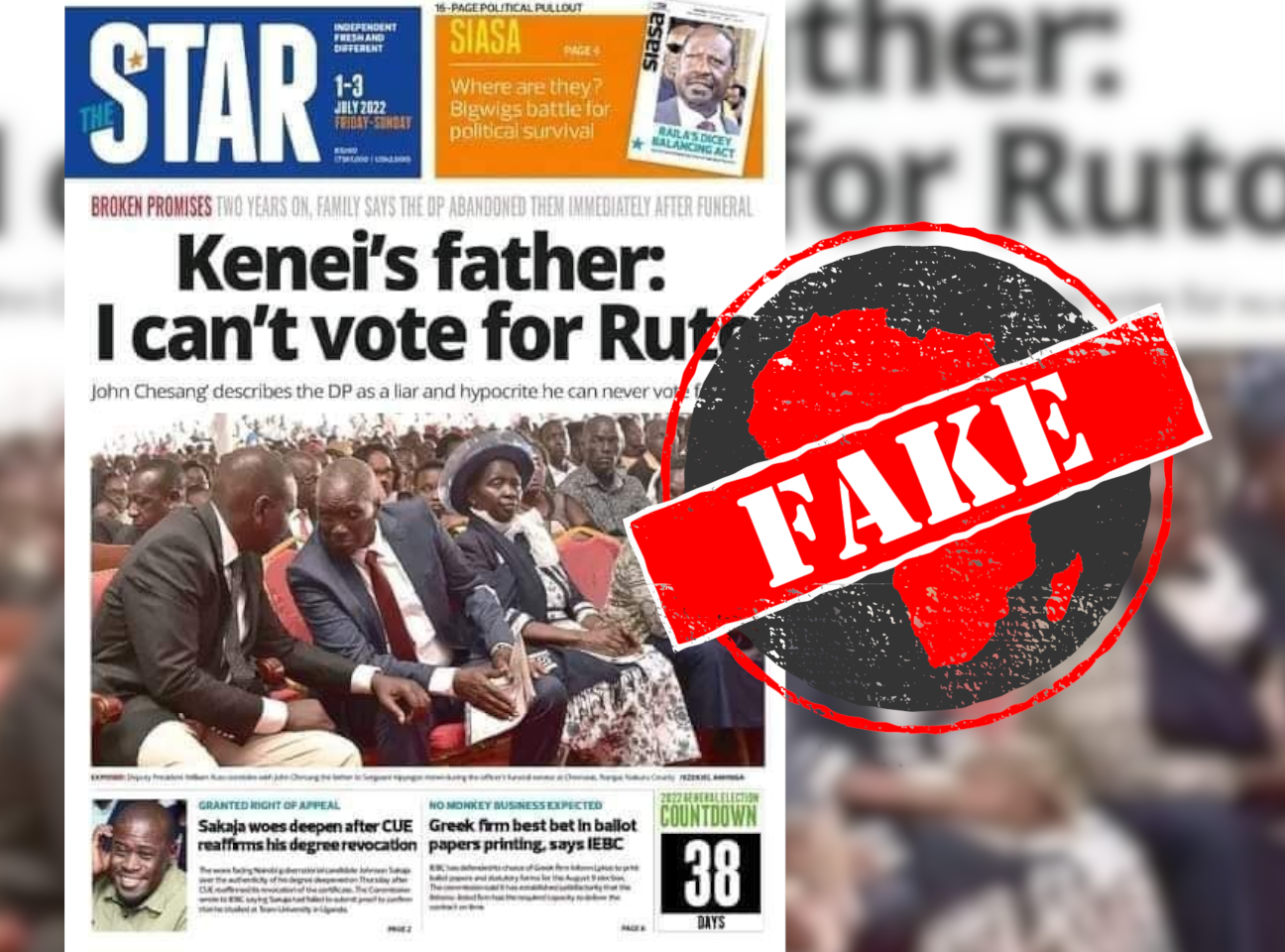What seems to be the front page of the Star, a Kenyan newspaper, is circulating on Facebook with a headline quoting John Chesang. Chesang is the father of deputy president William Ruto’s late bodyguard Arnold Kipyegon Kenei, who was murdered in 2020.
“Kenei’s father: I can’t vote for Ruto,” the headline reads. A summary below adds: “John Chesang describes the DP as a liar and hypocrite he can never vote for.”
The newspaper, dated 1 to 3 July 2022, shows a photo of the deputy president talking to Chesang during Kenei’s funeral service in March 2020. It’s been posted on Facebook here, here, here, here, here and here.
Kenei was found dead from a gunshot wound at his Nairobi home in February 2020. He was among six police officers on duty when former Kenyan sports cabinet secretary Rashid Echesa, and what news reports described as “two white men”, visited Ruto’s office in Nairobi that month. The visit was later linked to a fake and fraudulent arms deal.
Local media reported at the time that detectives had linked Kenei’s murder to the visit but the case has never been resolved. Echesa was acquitted of the arms fraud charges in December 2021.
Ruto is the presidential candidate for Kenya Kwanza, a coalition of political parties set up ahead of the August 2022 elections.
But did the Star really report that Chesang had said he wouldn’t vote for Ruto because the candidate was “a liar and hypocrite”?

‘Ruto’s multi-billion purse’
The Star often posts its front pages on social media. We quickly found its 1 to 3 July 2022 issue on Facebook.
The headline is: “Ruto’s multi-billion purse for ‘hustlers’”. Text below reads: “DP says manufacturing capital-intensive and doesn’t create enough jobs. No mega dams.”
The version circulating elsewhere on Facebook has been altered. And the Star has labelled it “fake”.
Republish our content for free
For publishers: what to do if your post is rated false
A fact-checker has rated your Facebook or Instagram post as “false”, “altered”, “partly false” or “missing context”. This could have serious consequences. What do you do?
Click on our guide for the steps you should follow.
Publishers guideAfrica Check teams up with Facebook
Africa Check is a partner in Meta's third-party fact-checking programme to help stop the spread of false information on social media.
The content we rate as “false” will be downgraded on Facebook and Instagram. This means fewer people will see it.
You can also help identify false information on Facebook. This guide explains how.





Add new comment